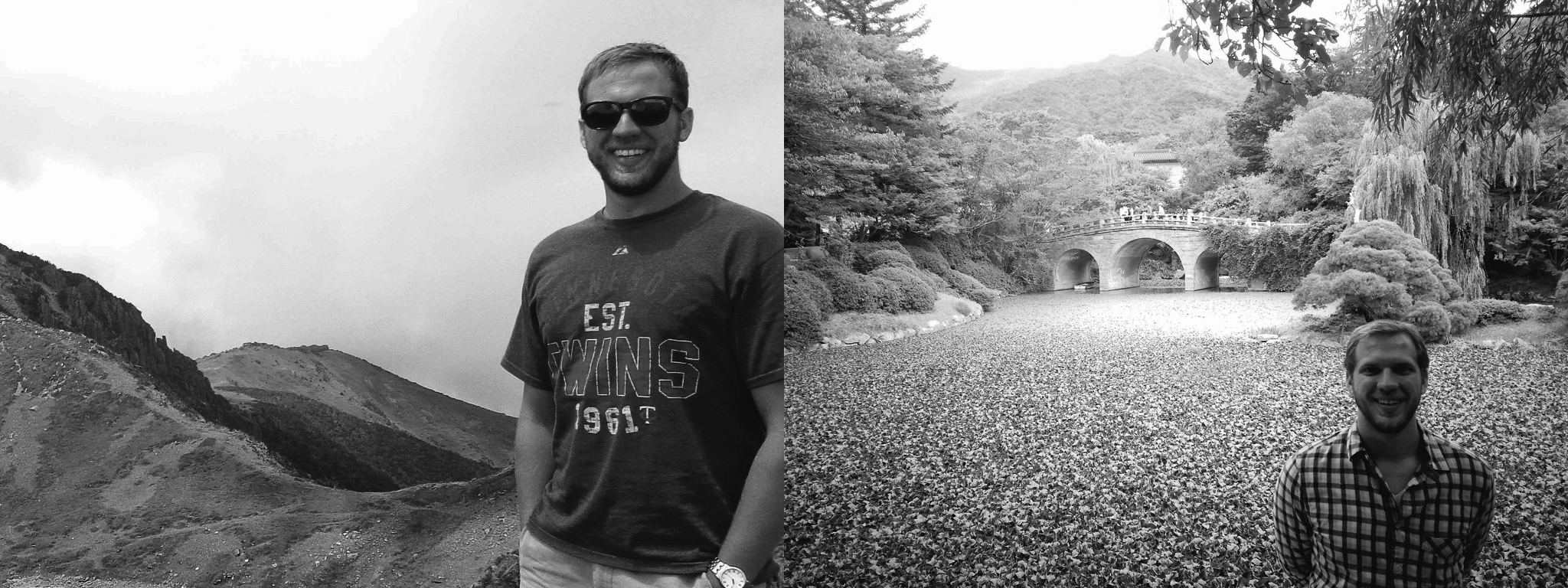News
A year in South Korea
Scott Wagar
09/24/2013

Stefan Olson has just returned back to Bottineau after spending a year in South Korea teaching English to the country’s students in kindergarten through seventh grade.
“I was on a small island called Jeju-do, which is half way between Korea and Japan in the southwest corner of the country,” Olson said. “The island is 20 miles wide and 40 miles long and is known as the Hawaii of Korea because it’s the resort destination of Korea.”
During Olson’s year on the Jeju-do Island, he taught in Jeju City through an educational program to aide South Korea’s children in public schools to learn the English language more proficiently.
“It’s called English Program in Korea, or EPIK for short, and it’s sponsored by the Korean government. For almost 20 years the country has been bringing in foreign teachers to try and improve the English of their students in the country,” Olson said. “I taught in a poor region of Jeju City which is the largest city on the north side of the island.”
Coming from an American school system, Olson stated that the education Korean students receive have parallels to America, but at the same time are poles apart.
“The education system is similar to America but very different. In America, we really emphasis well roundness, especially coming from a small town like Bottineau where we focus on athletics, extracurricular activities, band, which are the things we value.
“In Korean, the schools only really support education. If you want to do an extracurricular activity it’s normally outside of the school. More than anything in Korean society they really value an education. It is very, very competitive to the point that starting in the third grade they have national standardizes tests,” Olson said.
“In Korea, everybody can go to school through high school, but the high schools are competitive to get into. So, the national exams you take in middle school determine the high school you get into. And then, you study very hard throughout high school to get into a good university, because if you have good enough scores, you go to the best universities. If your score in not par, you go to lower universities,” Olson added.
Olson commented that in South Korea public school starts at 7 a.m. and goes until 3 p.m. He added that if students come from wealthy families in the country, they continue on in their educational day and go to private schools from 3:30 to 10 p.m., and then go home and study until one or two o’clock in the morning.
“They’re studying science, English and math. Basic subjects to get ahead of the next kid,” Olson said.
Even though Olson’s school was in a poor district of the city, the public school he worked in assisted its students with after school programs to help them improve their chances in getting the best education South Korea offered it students with the country’s standardize tests.
Culturally, Olson said the country is primarily Buddhist and are homogeneous as a populace.
“As a Buddhist, Confucianism is highly prevalent with the idea of oneness and being a collaborate society where everyone looks out for one another,” he said. “That is the traditional Korea.”
Olson added that the people of South Korea are very welcoming and want to assist foreigners.
What makes Jeju-do Island a Mecca for tourism in South Korea comes from its landscapes, climate and its entertainment value.
Jeju-do is the first location throughout the world to obtain UNESCO designations in all three of the natural sciences when the island was granted the Biosphere Reserve award in 2002, World Natural Heritage in 2007 and Global Geopark in 2010.
The island was formed over two million years ago through volcano activity, which left a dormant volcanic island with the highest mountain in South Korea in the center of the island, Hallasan, with a height of 6,397 feet.
The island also has over 360 small mountain sites and over a 160 lava tubes or caves, which individuals can explore.
The weather is hot in the summer months, but fair in the winter and grants residents and tourist hiking paths, natural parks, flora and some of the most beautiful birds known to mankind.
The island is also known for its cuisine, museums and some of the best golf courses in Asia.
For Olson, he spent his days in South Korea in these surroundings and utilized his free time exploring the island on a motorcycle he purchased on the Jeju-do.
“It was fantastic. I would recommend it to most people, not just for the job, but the community events,” Olson said. “That’s what really made it worthy, and the friends that I made there.”
For Olson, his life in Jeju-do was a lucky draw for him. As a senior at Concordia College in Moorhead, Minn., with an educational major, he was looking for a job when he came across the EPIK program. Olson applied and was accepted to the program and by a lucky draw of the Korean government he was placed in Jeju-do to teach.
Olson stated that his time as an educator in South Korea taught him many valuable lessons.
“I learned a lot about myself, a lot about friendship, a lot about social and cultural acceptance and just to be patient,” he said. “I think basically it has made me a calmer person, a person looking for everyday adventures in life, looking for the fun and joy we can experience in everyday life and the opportunities we normally pass by.”
